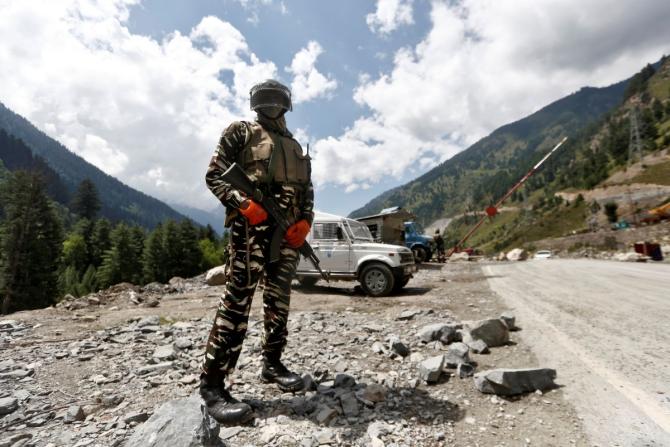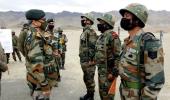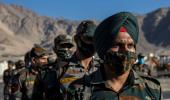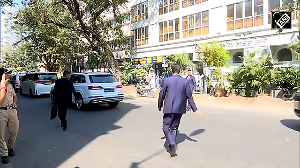With another round of talks on the border standoff with China likely soon, India on Thursday said it is necessary to ensure stability on the ground while the two sides work towards ensuring complete disengagement of troops in all friction areas in eastern Ladakh.

At a virtual media briefing, Ministry of External Affairs (MEA) Spokesperson Anurag Srivastava said disengagement is a complex process which would require mutually agreed 'reciprocal actions' and the way ahead will be to refrain from making any attempts to unilaterally change the status quo.
Srivastava also said the next meeting under the framework of the Working Mechanism for Consultation and Coordination (WMCC) on India-China border affairs is likely to take place 'soon'.
It is learnt that the WMCC talks will take place ahead of the next round of the Corp-commander-level discussions.
"Even as two sides work towards complete disengagement in all friction areas, it is at the same time also necessary to ensure stability on the ground.
"The latest senior commanders meeting should be seen in this overall context," he said.
India and China held the sixth round of Corps commander-level talks on Monday following which both sides announced a series of decisions including to stop sending more troops to the frontline, refrain from unilaterally changing the situation on the ground and avoid taking any actions that may further complicate matters.
The MEA spokesperson referred to the first ever joint press release issued by the two sides on Tuesday after any Corps commander-level meeting during the four-and-a-half-month standoff, adding it reflected their stated commitment to disengage along the Line of Actual Control (LAC).
"As we have pointed out earlier, disengagement is a complex process that requires redeployment of troops by each side towards their regular posts on their respective sides of the LAC. This would require mutually agreed reciprocal actions," he said.
Srivastava also said the meeting gave the senior commanders an opportunity to have candid and in-depth exchanges of views on stabilising the situation along the LAC.
"The way ahead will be to refrain from making any attempts to unilaterally change the status quo, while the two sides continue their discussions to achieve complete disengagement in all friction areas and to ensure full restoration of peace and tranquillity in the border areas," he said.
He also mentioned about the decision of the two sides at the military talks to have the next meeting of the senior commanders at the earliest.
"In parallel, the next meeting of the WMCC is also likely to take place soon."
Referring to the military talks, Srivastava said the two sides had decided to strengthen the ground communication to avoid any further misunderstandings and misjudgments, stop sending more troops to the frontline, refrain from unilaterally changing the situation on the ground, and avoid taking any actions that may complicate the situation.
It was for the first time the Indian army and the Chinese People's Liberation Army(PLA) announced specific measures to ease tensions in eastern Ladakh where the face-off began in early May.
Since then, the two militaries rushed in thousands of troops and heavy weaponry to almost all the sensitive areas along the LAC.
The situation escalated manifold after 20 Indian soldiers were killed in a clash in Galwan Valley on June 15.
The Chinese side too suffered casualties, but it is yet to divulge the details.
The situation further deteriorated following at least three attempts by the soldiers of the PLA to 'intimidate' Indian troops along the northern and southern bank of Pangong lake area in the last three weeks where even shots were fired in the air for the first time at the LAC in 45 years.
As the tensions escalated further, the foreign ministers of the two countries held talks on the sidelines of a Shanghai Cooperation Organisation meet in Moscow on September 10 where they reached on a five-point agreement to defuse the situation in eastern Ladakh.
The agreement was the basis for the sixth round of Corps commander-level talks on Monday which was also attended for the first time by a joint secretary from the MEA.
The agreement aimed at ending the tense standoff included measures like quick disengagement of troops, avoiding action that could escalate tensions, adherence to all agreements and protocols on border management and steps to restore peace along the LAC.








